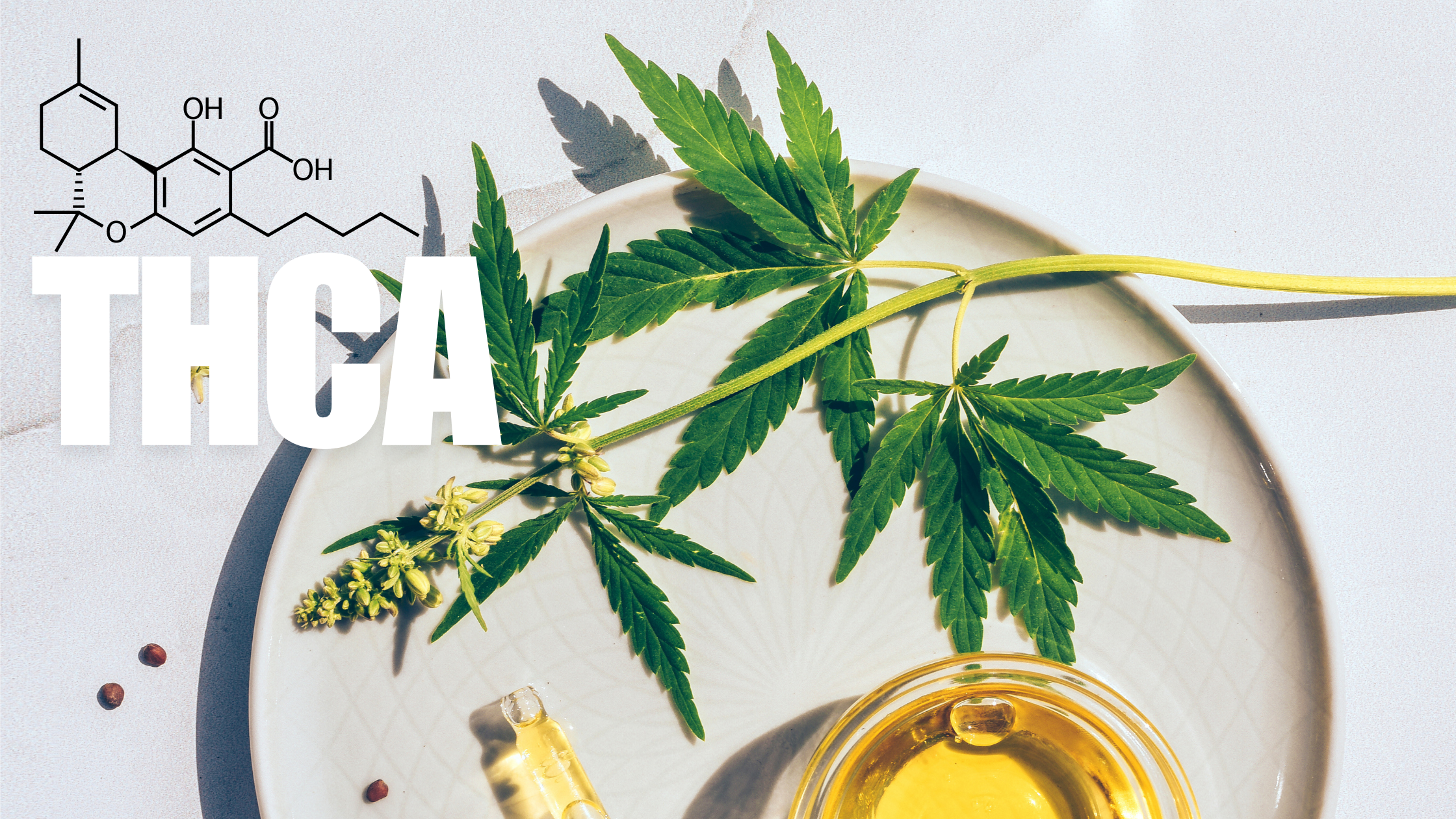Understanding THCA
As the cannabis industry evolves, more consumers are becoming interested in learning about different cannabinoids, particularly THCA (tetrahydrocannabinolic acid). One frequent question is, Is THCA strong? To answer this, we’ll explore what THCA is, how it differs from THC, and what to expect from high-THCA products.
What is THCA?
THCA is a non-psychoactive cannabinoid found in raw cannabis plants. Unlike THC (tetrahydrocannabinol), which is known for its psychoactive effects, THCA remains non-intoxicating until it is exposed to heat. This process transforms THCA into THC, the compound responsible for the high many cannabis users seek. However, THCA in its unheated state has garnered attention for its potential health benefits.
How Does THCA Differ from THC?
While both THCA and THC come from the cannabis plant, their effects and properties differ. THCA is the acidic precursor to THC. When cannabis is heated—whether through smoking, vaping, or cooking—THCA converts to THC, which then binds to the brain’s cannabinoid receptors to create psychoactive effects.
This conversion process is essential because it dictates the experience users will have. THCA in raw form can be beneficial without the psychoactive side effects of THC.
The Potency of THCA
When discussing the potency of cannabis, it’s often associated with its psychoactive strength, typically measured by THC levels. But where does THCA fit in?
What Does “Strong” Mean?
In cannabis terms, “strong” usually refers to the psychoactive potency, measured by THC content. Since THCA does not become THC without heat, it does not fit the traditional definition of “strong.” However, THCA’s strength can be assessed through its potential therapeutic properties and effectiveness in addressing health conditions. For those seeking relief without intoxication, high-THCA products can be considered potent in their health benefits.
Comparing THCA Strength to THC
THCA and THC serve different roles in the cannabis experience. THC is renowned for its psychoactive effects, while THCA is valued for its therapeutic benefits without causing a high. A strain with a high THCA content won’t get you “baked,” but it can still be powerful for treating issues like inflammation or nausea.
The Benefits of THCA
Even without psychoactive effects, THCA is praised for a variety of health benefits, making it a compelling choice for many users.
Therapeutic Uses
Research suggests that THCA may help with several conditions, such as:
- Chronic Pain: THCA’s anti-inflammatory properties can be beneficial for managing chronic pain.
- Nausea and Vomiting: THCA may provide relief from nausea, which is especially helpful for individuals undergoing chemotherapy.
- Neuroprotection: Preliminary studies indicate that THCA might protect brain cells from damage, potentially aiding conditions like Alzheimer’s disease.
Non-Psychoactive Effects
One of the main advantages of THCA is that it delivers potential health benefits without the psychoactive effects associated with THC. This makes it ideal for users who want to incorporate cannabis into their daily routines while maintaining mental clarity and focus. It’s particularly beneficial for those who need to manage symptoms during the day without feeling impaired.
How THCA is Consumed
The way THCA is consumed can greatly impact its potency and effectiveness.
Raw Cannabis vs. Heated Forms
THCA is most effective in its raw form. Consuming raw cannabis leaves or juicing them allows users to enjoy THCA’s benefits without converting it to THC. However, if psychoactive effects are desired, heating THCA through smoking or cooking will trigger decarboxylation and create THC.
Vaping vs. Smoking
Both smoking and vaping convert THCA into THC. However, vaping is often considered a healthier alternative as it allows for temperature control, minimizing the production of harmful byproducts associated with combustion. If lung health is a concern, vaping high-THCA strains may be a safer way to experience the desired effects.
User Experiences with THCA
Understanding how THCA affects users can shed light on its strength and efficacy.
Anecdotal Evidence
Many consumers who use high-THCA products report positive experiences, particularly when it comes to managing pain and inflammation. Users often appreciate that they can benefit from these effects without feeling high, allowing them to remain productive throughout the day.
Research Insights
Although research on THCA is still emerging, early studies indicate promising therapeutic potential. Ongoing research aims to further understand its benefits, which may strengthen its appeal as a non-psychoactive alternative in the future.
Risks and Considerations
As with any cannabis product, it’s important to be aware of potential risks and considerations.
Is THCA Safe to Consume?
THCA is generally safe for most people, especially when consumed raw. However, the method of consumption can impact safety. For example, smoking or vaping cannabis introduces potential respiratory risks due to harmful byproducts. For those concerned about lung health, alternative methods such as tinctures or edibles are recommended.
Potential Side Effects
While THCA is usually well-tolerated, side effects related to general cannabis consumption can still occur:
- Coughing or Throat Irritation: Common with smoking cannabis.
- Increased Heart Rate: Some individuals may experience a faster heart rate, especially when THCA is converted to THC.
Listening to your body and moderating your consumption can help ensure a positive experience.
Conclusion
So, is THCA strong? While it doesn’t produce the psychoactive effects of THC, THCA offers notable health benefits that can be considered “strong” in their own right. With potential anti-inflammatory, neuroprotective, and anti-nausea properties, THCA can be an effective option for those seeking relief without the high. Understanding how to consume it and recognizing its benefits can help you make informed decisions that align with your wellness goals.
Frequently Asked Questions
Can THCA get you high?
No, THCA is non-psychoactive unless heated and converted to THC.
What are the health benefits of THCA?
THCA may help with inflammation, nausea, and neuroprotection without causing a high.
How can I consume THCA safely?
Consume it raw in salads or smoothies, or use heating methods like vaping or cooking for conversion to THC.
Is THCA legal?
Yes, THCA derived from hemp is generally legal, but always check local regulations for compliance.
How long does THC stay in your system after consuming THCA?
THC can stay in the body for days to weeks, depending on frequency of use and metabolism.

